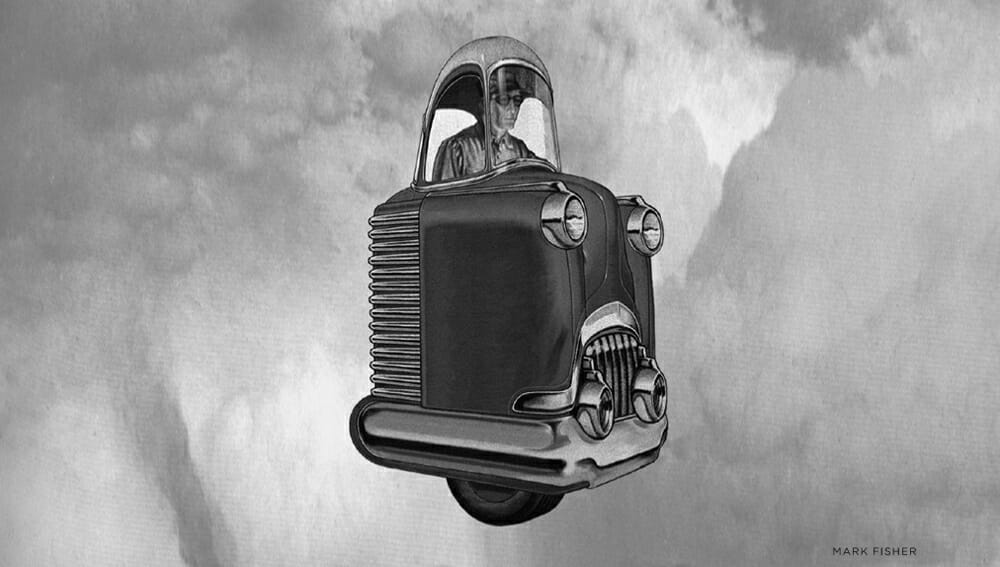But, actually, people want a ‘green future’.
“Over half of Brits (56%) agree that helping the environment via sustainable initiatives is the single most important factor when it comes to supporting new businesses.”
.
The financial markets clearly see ‘green’ as a good investment – with this announcement from NatWest last month:
NatWest pledges £100bn in green funding and eco-friendly loans for small firms – independent.co.uk
This month they published a further report – with the media focussing on the hi-tech aspects of ‘the future’:
Haptics, AI, and robots-to-rent will make up business of the future | express.co.uk
Picture this: Your robot housekeeper is hard at work doing the dusting while you zip to town in a flying taxi to grab a juicy algae burger.
However, the most important long-term ‘visionary’ aspect is perhaps the widespread interest in supporting ‘green businesses’:
NatWest commissioned the report to discover the small businesses and start-ups we could expect to see within the next 15 years. The visions of Britain in 2036 were put to a poll of 2,000 Brits, who were asked to choose which business predictions they would most like to see become reality…
Over half of Brits (56%) agree that helping the environment via sustainable initiatives is the single most important factor when it comes to supporting new businesses…
Vision of how our High Streets will look in 2036 | devonlive.com
So, it’s not really hi-tech gizmos which are the point.
Which is the point of the SolarPunk movement – which marries hi-tech visions with sustainable initiatives:
“Solarpunk believes individuals and communities can make a difference.”
In other words: beware the promises of flying taxis…
Here’s something from the Futures Forum blog from 2015:
Techno-promises unfulfilled >>> Where did the future go?
Technology promises us progress and prosperity:
Futures Forum: Using technology to transform enterprise
Futures Forum: Technology and economic progress
However…
It seems that we’ve been promised ‘progress through technology’ for rather too long:
Futures Forum: Of Back to the Future and the promise of flying cars
Futures Forum: “Where are the flying cars?” or, “What happened to derail so many credible ideas and prospects?”
Futures Forum: The language of bureaucracy >>> David Graeber and “The Utopia of Rules: On Technology, Stupidity, and the Secret Joys of Bureaucracy”
We are fascinated by all this promise.
This video from 2013 has received over 3 million hits:
And yet how many of us will be doing this in, say, sixty years’ time?
After all, we were promised the same sixty years ago:
This is the critique of techno-promise from David Graeber:
Of Flying Cars and the Declining Rate of Profit – The Baffler
Where Did the Future Go? David Graeber vs. Peter Thiel – The Baffler
There have been some excellent pieces following on from this:
David Graeber has republished his popular essay Of Flying Cars and the Declining Rate of Profit in his new book Utopia of Rules with some small changes that go toward supporting the book’s over-all argument that the hallmark of American neoliberalism is not dynamism and a freeing up of individuals to peruse “creative class” jobs but rather a bureaucratization of every aspect of life. This total bureaucratization (almost literally) papers over the structural violence that supports capitalism. Of Flying Cars specifically argues that the utter failure to deliver on the implicit promises of Jetsons-level automation by the 21st century is not necessarily a matter of market forces (no one actually wants a flying car!) or technical impossibility (Moore’s law hasn’t delivered thinking computers yet!) but is in fact a product of both squashing the imagination through bureaucratic devices, and the immense devaluing of labor and elimination of corporate profit taxation that leads to paltry civilian research and development. In essence, capitalism in its present form, is anathema to the future it once promised.

Of Flying Cars and the Declining Rate of Profit
Graeber states in the beginning of the essay that he is puzzled by the near silence from those people who saw the moon landing on their televisions but today do not, themselves, live on the moon (or can easily teleport there, or take a drug that might extend their life to the time that both of those things are available). “Instead,” he writes, “just about all the authoritative voices—both on the Left and Right—began their reflections from the assumption that a world of technological wonders had, in fact, arrived.”
Graeber relatively quickly drops the issue of how our collective expectations of the future could be so quickly and completely re-aligned (his answer is postmodernism) and goes on to explain why such an alignment has become necessary (capitalism’s secret love of bureaucracy) but I want to dwell on the “how” question a little bit longer by offering up a corollary to Of Flying Cars.
The original article, available in full here, argued that the top-down technocratic perspective exemplified by Robert Moses’ demolishing of vast swaths of New York City are still alive and well today, but are repackaged in Silicon Valley platitudes of disruption and hacking that circulate in popular media so as to 1) provide the technocrat’s view of the world as an inevitable future, 2) drum up support for a clearly unethical approach to technological development by establishing narratives that reaffirm the need for the technocratic view, and 3) establish popular touchstones that make small areas of research that benefit an elite few appear to be global needs on the scale of clean water or sanitation.
Technological Determinism Dies Hard: A Corollary to Graeber’s “Of Flying Cars” – Cyborgology
See also:
Futures Forum: A history of predicting technological advances >>> Tomorrow’s World at 50 on BBC Radio 4
Futures Forum: Techno-promises unfulfilled >>> Where did the future go?